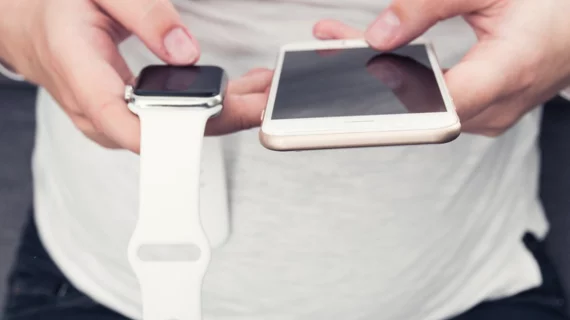Critics concerned FDA is playing cheerleader during Apple’s health push
The Apple Watch’s FDA-cleared electrocardiogram (ECG) feature has already helped some people uncover undiagnosed atrial fibrillation, leading to necessary medical treatment. But cardiologists fear false positives may be the more common occurrence in low-risk individuals, potentially leading to unnecessary testing and emotional strain in those users, according to Politico.
Consumers who actively track their health data with a smartwatch might be wealthier and more health-conscious than the average person, whereas the AFib detection feature is most effective in higher-risk groups.
“Take a moderately good test and apply it to a population with a very low risk of atrial fibrillation, and you will have a lot of false positives,” said Venk Murthy, MD, a nuclear cardiologist at the University of Michigan.
Critics also worry the FDA has taken too enthusiastic of an approach in welcoming Apple’s foray into the healthcare space, according to Politico. FDA Commissioner Scott Gottlieb, MD, described the industry as in need of some disruptive technologies, but one medical device regulatory expert suggested the FDA “took extra efforts to accommodate one company.”
The article points out no peer-reviewed studies have detailed the performance of the Apple Watch’s AFib-detection algorithm. However, results from the Apple Heart Study—a large-scale AFib screening study using the smartwatch—will be presented March 16 at the American College of Cardiology scientific sessions in New Orleans.
That study should lead to some interesting conversations “about what wearable technology holds for us in the future,” ACC.19 program chair Andrew Kates, MD, told Cardiovascular Business.
Read the full Politico story below:

